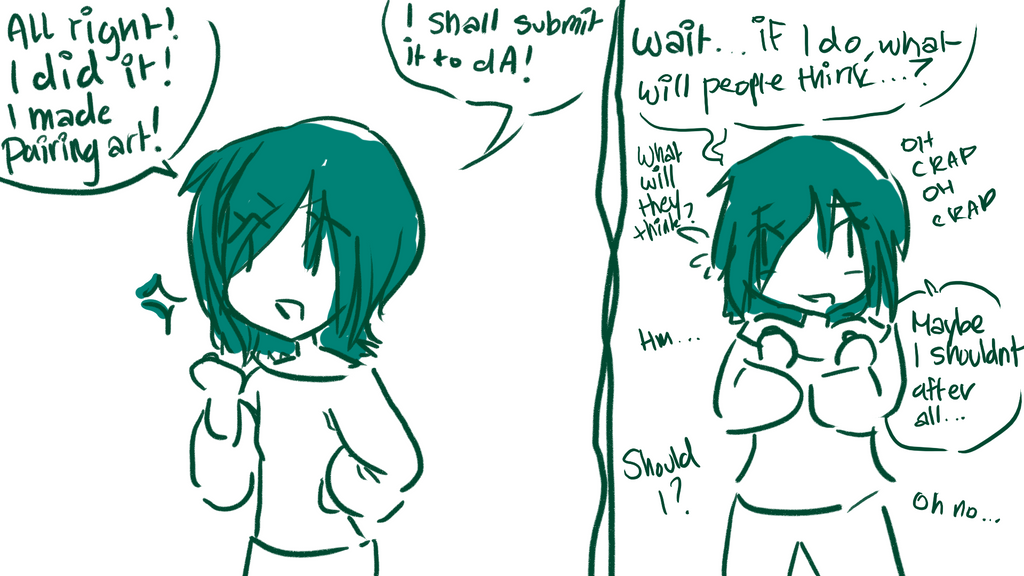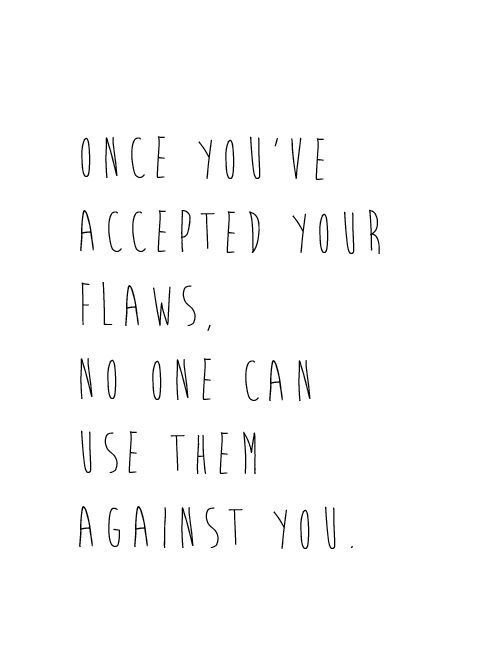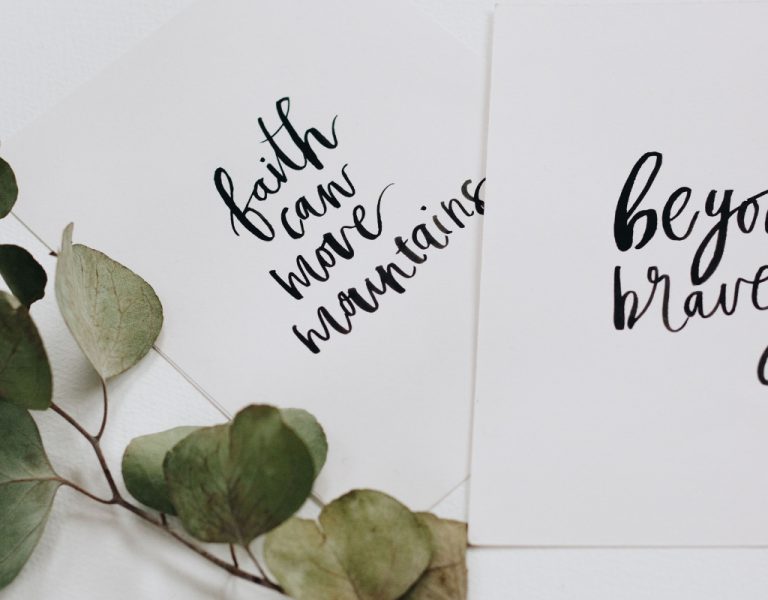What is Confidence, Anyway?
We all know it when we see it, except maybe we don’t. Confidence has long been an elusive and nebulous idea, and our understanding of the concept has only begun to improve in recent years. Everyone has their own ideas of what constitutes self-confidence, but in general, there are a few distinguishing hallmarks.
- Composure: the ability to stay cool and calm regardless of the situation.
- Self-awareness: an understanding of your strengths and weaknesses as well as your core values and beliefs.
- Action: the willingness to jump in and take action even in the face of fear and uncertainty.
- Self-belief: an implicit belief in your abilities and your capacity to handle a given situation.
In other words, confidence boils down to a firm understanding of who you are and what you do well, a resolute belief in your abilities and a willingness to act on that belief. It’s important to point out that confidence does not mean knowing all the answers or believing that you can do anything, nor is it an all-or-nothing affair. Confident people have doubts and fears, too, and most people are not confident in every aspect of their lives. Instead, what separates confident people is a willingness to push forward and a belief in their ability to handle whatever comes their way.
“Confidence boils down to a firm understanding of who you are and what you do well, a resolute belief in your abilities and a willingness to act on that belief.”
The Skill of Confidence
Now that we have a better understanding of what confidence actually means, it’s important to point out that it’s not an innate gift given to a lucky few. Confidence is a skill, and like other skills, you can learn and improve it with a bit of hard work and perseverance. This simple switch in thinking has tremendous ramifications, as it means there are really no barriers standing in your way except those that you’ve erected yourself. No matter where you are in life, you can make a conscious decision right now to become a more confident person.This may seem like a lot of work, but there’s no question the rewards are worth it.
So How do You Improve Your Self-Esteem In A Natural Way?
1. Say stop to your inner critic.
A good place to start with raising your self-esteem is by learning how to handle and to replace the voice of your own inner critic.
We all have an inner critic.
It can spur you on to get things done or to do things to gain acceptance from the people in your life. But at the same time it will drag your self-esteem down.
This inner voice whispers or shouts destructive thoughts in your mind. Thoughts like for example:
- You are lazy and sloppy, now get to work.
- You aren’t good at your job at all and are replaceable.
- You are worse or uglier than your friend/co-worker/partner.
You don’t have to accept this though. There are ways to minimize that critical voice and to replace it with more helpful thoughts. You can change how you view yourself.

One way to do so is simply to say stop whenever the critic pipes up in your mind.
You can do this by creating a stop-word or stop-phrase.
As the critic says something – in your mind – shout: STOP!
Or use my favorite: No, no, no, we are not going there!
Or come up with a phrase or word that you like that stops the train of the thought driven by the inner critic.
Then refocus your thoughts to something more constructive. Like planning what you want to eat for dinner or your tactic for the next soccer game.
In the long run it also helps a lot to find better ways to motivate yourself than listening to your inner critic. So let’s move on to that…
2. Use healthier motivation habits.
To make the inner critic less useful for yourself and that voice weaker and at the same time motivate yourself to take action and raise your self-esteem it is certainly helps to have healthy motivation habits.
A few that I have used to replace and fill up much of the place that the inner critic once held in my mind are these:
- Remind yourself of the benefits. A simple but powerful way to motivate yourself and to keep that motivation up daily is to write down the deeply felt benefits you will get from following this new path or reaching a goal.
Like for example getting into better shape and having more energy for your kids and the people close to you. Or making more money and through that being able to travel with the love of your life and experience wonderful new things together.
When your list is done then save it and put it somewhere where you will see it every day. For instance in your workspace or on your fridge. - Refocus on doing what YOU really, really like to do. When you really, really like doing something then the motivation to do that thing tends to comes pretty automatically. When you really want something in life then it also becomes easier to push through any inner resistance you feel.
So if you lose your motivation, ask yourself: Am I doing what I really want to do? If not and if possible, then refocus and start working on that very important thing instead.
After you have used your stop-word or phrase focus on one of these techniques. Over time it will become a habit and your inner critic will pop up a lot less often.
3. Take a 2 minute self-appreciation break.
This is a very simple and fun habit. And if you spend just two minutes on it every day for a month then it can make huge difference.
Here’s what you do:
Take a deep breath, slow down and ask yourself this question: what are 3 things I can appreciate about myself?
A few examples that have come up when I have used to do this exercise are I:
- Help quite a few people each day through what I write.
- Can make people laugh and forget about their troubles.
- Am very thoughtful and caring when it comes to my friends problems and concerns.
These things don’t have to be big things.
Maybe just that you listened fully for a few minutes to someone who needed it today. That you took a healthy walk or bike ride after work. That you are a caring and kind person in many situations.
These short breaks do not only build self-esteem in the long run but can also turn a negative mood around and reload you with a lot of positive energy again.
4. Write down 3 things in the evening that you can appreciate about yourself.
This is a variation of the habit above and combining the two of them can be extra powerful for two boosts in self-esteem a day.
Or you may simply prefer to use this variation at the end of your day when you have some free time for yourself to spare.
What you do is to ask yourself the question from the last section:
What are 3 things I can appreciate about myself?
Write down your answers every evening in a journal made out of paper or on your computer/smart phone.
A nice extra benefit of writing it down is that after a few weeks you can read through all the answers to get a good self-esteem boost and change in perspective on days when you may need it the most.

5. Do the right thing.
When you do what you deep down think is the right thing to do then you raise and strengthen your self-esteem.
It might be a small thing like getting up from the couch and going to the gym. It could be to be understanding instead of judgmental in a situation. Or to stop feeling sorry for yourself and focus on the opportunities and gratitude for what you actually have.
It is not always easy to do. Or even to know what the right thing is. But keeping a focus on it and doing it as best you can makes big difference both in the results you get and for how you think about yourself.
One tip that makes it easier to stay consistent with doing the right thing is to try to take a few such actions early in the day. Like for example giving someone a compliment, eating a healthy breakfast and working out.
 6. Replace the Need for Perfectionism.Few thought habits can be so destructive in daily life as perfectionism.It can paralyze you from taking action because you become so afraid of not living up to some standard. And so you procrastinate and you do not get the results you want. This will make your self-esteem sink.Or you take action but are never or very rarely satisfied with what you accomplished and your own performance. And so your opinion and feelings about yourself become more and more negative and your motivation to take action plummets.
6. Replace the Need for Perfectionism.Few thought habits can be so destructive in daily life as perfectionism.It can paralyze you from taking action because you become so afraid of not living up to some standard. And so you procrastinate and you do not get the results you want. This will make your self-esteem sink.Or you take action but are never or very rarely satisfied with what you accomplished and your own performance. And so your opinion and feelings about yourself become more and more negative and your motivation to take action plummets. How can you overcome perfectionism?A few things that really helped me are:
How can you overcome perfectionism?A few things that really helped me are:
- Go for good enough. When you aim for perfection then that usually winds up in a project or a task never being finished. So simply go for good enough instead. Don’t use it as an excuse to slack off. But simply realize that there is something called good enough and when you are there then you are finished.
- Remember that buying into myths of perfection will hurt you and the people in your life. This simple reminder that life is not like in a movie, a song or a book can be good reality check whenever you are daydreaming of perfection. Because reality can clash with your expectations when they are out of this world and harm or even possibly lead to the end of relationships, jobs, projects and so on.
7. Be kinder towards other people.
When you are kinder towards others you tend to treat and think of yourself in a kinder way too. And the way you treat other people is how they tend to treat you in the long run.
So focus on being kind in your daily life.
Studies have shown that self-confident people are more productive, often have larger social groups, are viewed as more attractive and charismatic, are chosen more often for jobs and promotions and generally lead happier, more well-rounded lives. Self-confidence also gives you the strength to navigate difficult situations more successfully, and it tends to lead to healthy, positive life choices. It’s difficult to overstate just how much a healthy dose of self-confidence can improve your life, which should be plenty of incentive to get started and take a more active role in becoming the confident, self-assured person you know you can be.
The Road to Self-Confidence
On a practical level, the biggest hurdle is often overcoming negative self-talk. We all have an inner critic that likes to spark doubt and point out our shortcomings, and dealing with this voice can seem like an insurmountable challenge. However, there’s a simple tip that can make all the difference. While the voice may never go away, it’s much easier to correct and redirect it. Pay attention to your inner critic and, instead of accepting or ignoring it, challenge it. Is the negativity caused by a valid issue? If it’s not, consciously replace those negative thoughts with more positive ones. If it is, redirect it by focusing on ways you can better yourself rather than becoming mired in negativity.

In addition, it’s important never to let perfect be the enemy of good. In other words, don’t become so caught up in doing things perfectly that you fail to appreciate your ability to do things well enough. We tend to magnify our own flaws and critique ourselves far more harshly than others do, and while it’s great to always strive to do better, sometimes all you need is a reminder that you’re good enough already. It’s also helpful to remember that it’s okay to fail. If there’s something you’d like to do but are afraid of failing at, do it anyway and view the result as a learning experience. Everyone fails occasionally – it’s how we respond to failure that matters.
Since finding a new found confidence, I took 100% responsibility for my life because the idea of dying was scarier than the idea of living. If I was going to live, I decided I will do it in the best possible way.
So, what are you waiting for? It’s never too late to become the person you’ve always wanted to be!
If you have any other tips you implement to help become more confident, share them below 🙂






